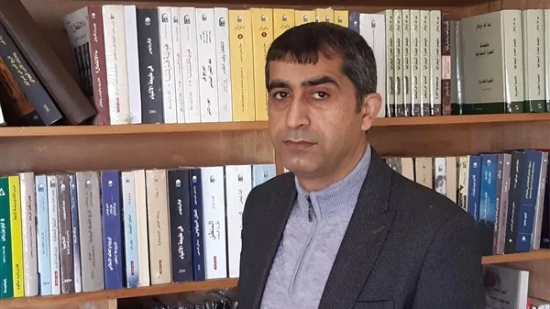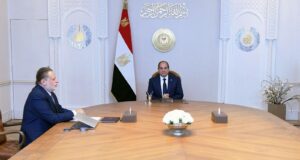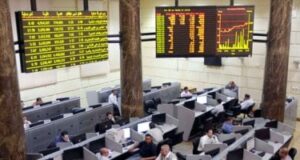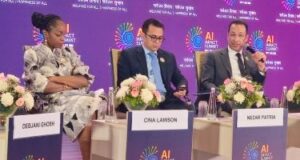Ahmed shikho writes :The Turkish threat..the biggest threat to stability, security and peace

alhadath – cairo
Why is the Turkish threat and intervention the most dangerous among the external challenges and interventions for Arab countries and the region in general?
What are the nature, tools and objectives of Turkish intervention, and where is the Kurdish issue in these interventions, and how can we protect the region, its security and stability, and work to confront and deter Turkish interference?
Our region has many internal and external challenges, as well as many external, regional and global interventions. These interventions, by weakening and reducing the availability of the potential and self-capabilities of societies and countries, constitute the factors of the negative influence on the protection of the identity and society, the internal societal moral values, the causes of advancement, freedom, democracy and prosperity in all social, political and economic fields, security and military, to the fields of media, energy, water and development. In other words, these interventions pose a danger and a major threat to the national security of the peoples and countries of the region.
Since the twelfth century, with the increase in commitment and ossification, the prohibition of ijtihad, and the execution of scholars, philosophers and intellectuals for authoritarian reasons and goals, the central civilization began to change its place and its basic forces and move towards Italy and Western Europe to provide a greater awareness of the truth in it than the region. Since then, our region has lived in a state of alienation, loss of subjectivity, identity, compass, and eastern democratic traditions.
Since the collapse of the Ottoman Empire as the last representative of Islamic civilization and its 600 years which were full of weakness, stagnation, idleness, ignorance, injustice and the use of religion for the purposes of rule, control and looting, the incoming of Western powers, led by Britain and then America, and the division of the region into national states and subordinate authorities, internal challenges as well as external interferences from functional and global regional states have become major threats to the values and subjective capacity as well as to the societal identities and the different peculiarities of the peoples and nations in the region.
Perhaps the greatest means of intervention by the world powers was through the establishment of nation-states and the homogeneous stereotyped nation-state, as an assault and encroachment on the diverse and multi-national nature of the region, religions and beliefs,and on who were living in an integrated and faculty-democratic framework that preserved difference and diversity within the framework of the overall democratic cultural unity and in light of the security needs common to peoples and societies.
To achieve the global hegemony of the global system over our region and the peoples of the region, orientalist ideas were exported to the region to form elite and collective awareness, if possible, in a manner that suits their plans. That was through the establishment of Turkey in 1923 as the most important functional regional state through which global hegemony over the region is achieved, in addition to creating a nucleus of global hegemony in the region like Israel, as well as allowing the empowerment of political Islamists, both Sunni and Shiite, in a number of countries in the region, as in Iran, allowing and assisting in directing the events or revolution of Iran, and empowering the advent of Khomeini and Wilayat al-Faqih for many reasons, most notably the formation of a functional, preventive and deterrent situation for the spread of leftist and democratic socialist thoughts.
It is correct to say that among all the external threats to the stability, security and safety of the region, the intervention of the Turkish state and its current authorities (the Justice and Development Party, the Turkish Nationalist Movement Party and the Ergenekon) comes as the biggest threat, especially to the Arab countries and their societies, as well as to the Kurdish people and to all the peoples and countries of the region and the ocean, for many reasons:
1_ Turkey and its current authorities use religion, especially Sunni Islam, which is espoused by most of the peoples of the region, especially Arab and Kurdish, and this is what gives it an advantage or greater danger than other interventions because it can, under the name of religion, exploit, intervene and penetrate the countries and peoples of the region.
2_ No objection and no rejection by international forces of Turkish interventions in the countries of the region, unlike other interventions, because eventually Turkey has a functional role in the NATO system, and Turkey’s expansion in the end is a strengthening of NATO’s influence. And no matter how Turkey and its authorities claim independence of behavior and the possibility of acting alone, but the truth is not that, as the economy, the Turkish army, its armament, the structure of the Turkish state, and the mechanism for the arrival and formation of any authority in Turkey are according to the desire and will of NATO and the global system, given the importance and location of Turkish geostrategy. This is what we have observed in recent years and we see in the behavior of the Turkish authorities, which are outside all legal and international frameworks, towards the Kurdish people and the Arab countries. This is not available for other interventions, such as the Iranian, Russian and Chinese intervention, for example.
3_ Turkey’s desire to restore and revive the Ottoman Empire within the neo-Ottoman project. As it sees itself as the owner of the inheritance of the Ottoman Empire and has the right to intervene, control and rule, and that there are millions of Turks in these regions and countries and it must protect them or claim that, as in its intervention in Iraq, Syria, Libya and others. 4_ Turkey’s formation of armies of mercenaries from the countries and peoples of the region from the Muslim Brotherhood and its various branches and derivatives from al-Qaeda, ISIS and.
others, as well as from some complicit parties and families, as in Iraq, specifically in southern Kurdistan (the Kurdistan region of Iraq).
5_ The lack of interaction and vision of the countries and peoples of the region, especially the
Arab countries, of the main issue in Turkey, the Kurdish issue and its importance, as all of Turkey’s policies, movements and behaviors depend on one center and goal, which is to prevent the Kurdish people in Turkey and the countries of the region and anywhere from obtaining their natural rights like the rest of the peoples of the region. There is no doubt that interaction with the Kurdish people, building bridges of trust and relations and supporting them in their struggle and their just demands will limit Turkish interventions in the Arab countries because of the geography of Kurdistan and the presence of the Kurdish people and its main forces between the Arab regions and the Turkish state. The observed silence of the Arab countries on Turkey’s recent attacks on the areas of Mtina, Zab and Avashin confirms this. Perhaps a solution to the Kurdish issue in Turkey and the region will rid Turkey of its interventionist policies and expansion, and of its functional role that threatens the stability and security of the region.
6_ The ability of Turkey and its authorities to change its discourse and tactics and give the various impressions it wants without changing its strategies, behaviors and distant goals for its neo-Ottoman project in occupying the countries of the region, as well as buying the silence of the countries of the region on its operations, intervention, attacks and occupation of the countries of the region until it achieves its goals. As it is now in its occupation of Syria Iraq and the silence of most Arab countries, believing and claiming that Turkey is on the path of changing its policies, behavior and interventions.
7_ Turkey’s use of the economic aspect and investments, as well as the aspect of humanitarian aid, to intervene in the countries of the region without objection from many, and even welcomed by some heads of state, officials and others, and this confirms the fact that the reality of Turkish intervention, its prospects, future and danger has not been seen.
8_ Turkey’s relations with regional powers and other interventions in the region and Turkish coordination with them, as Turkey’s relations with Israel, Iran and others.
9_ The Turkish intervention and occupation is distinguished from others in that it is based on the most dangerous practices and procedures, which are practices that amount to war crimes and demographic change, leading to ethnic cleansing and systematic displacement of the indigenous population, as happened and is happening in northern Syria in the city of Afrin and its districts and villages and in the areas of Serêkaniyê (Ras al-Ain) and Girê Spî (Tal Abyad). 10_ Turkey’s use of sedition, discrimination, disputes, attempts to incite, and the use of hate speech, punishable by international law, in its interventions and demonization of the different other, and attaching all charges and bad descriptions to it. In addition to the use of the Turkish geo-strategy and its sale to the central powers, to obtain global support in its behavior and practices, as in describing the struggle of the Kurdish people as terrorism and its demonization. 11_ Turkey’s use and exploit of refugees as a human reservoir which is easy to subject them, because of their circumstances, to bartering them, asking for billions of dollars on them, forming mercenaries from them on demand, sending them to wherever Turkey wants, and threateningthe Western world with the refugee encroachment, as in Turkey’s dealings with Syrians, Iraqis, Somalis, Libyans and others.
Accordingly, we can say that despite the multiplicity of challenges and external interventions on the security, stability and safety of the region, the threat and Turkish interference and the neo-Ottoman project remain among the most dangerous threats to the stability of the region and its peoples, Arab countries and others. Direct these interventions, take more serious and effective stances, raise the voice loudly in the face of Turkish attacks and campaigns of genocide, and stay away from shameful silence. One of the correct ways to confront and deter interventions is to achieve more interaction and communication between those affected by neo-Ottomanism, and to establish alliances and common positions among the peoples of the region, their forces and states.
 +00000000
+00000000











